Reflections from the CORE Group Conference: How Does Breakthrough RESEARCH’s Work Respond to Practitioner Priorities?
Written by: Abigail Sellman, Breakthrough RESEARCH
In October, I had the privilege of attending the first annual CORE Group Global Health Practitioner Conference in Nairobi, Kenya. This year’s conference theme was “Leverage, Link, and Learn for Community Health.” The event was attended by dozens of individuals from organizations working in community health across sub-Saharan Africa and South Asia. The conference provided space for engagement with local leaders on the African continent, a platform for practitioners to share lessons learned and best practices, an opportunity to foster collaborations, and a chance to learn about practitioner priorities as well as reflect on how Breakthrough RESEARCH is contributing to them.
Priority 1: There is a strong desire for more evidence and insights into effective, scalable interventions focused on provider behavior change in the maternal and child health space.
Many of the conference sessions centered around improving quality of care and women’s experience of care throughout pregnancy and during the postpartum period. Presenters shared their work on interesting and innovative client-centered interventions, such as antenatal care clubs and alternative-birthing-position beds, that improve women’s experience and help align expectations between women and providers. Other sessions discussed how health worker trainings and workshops can be effective in improving quality of care and encouraging respectful care. However, client-centered interventions are only half the picture; provider trainings can be resource-intensive and hard to scale and may not always directly improve client experiences if they don’t focus on factors that influence women’s experiences. Thus, all presenters stressed the need for more evidence into scalable interventions aimed at provider behavior change.
Our recent work on respectful maternal care in Zambia led by ideas42 offers one solution for tackling this priority. Our set of behavioral interventions in Zambia were explicitly designed to be cost-effective and scalable for the local context and to improve women’s experience of care. The interventions were generated through a behavioral design process, which leverages evidence-based insights and approaches from behavioral economics, social psychology, human-centered design, and other disciplines to develop and test innovative solutions that influence people’s environment to positively influence their behavior. You can learn more about our interventions in Zambia in our research brief.
Priority 2: Advocacy groups working on the frontlines of community health stressed the need for practitioners at all levels to listen more deeply to local communities’ needs when deciding on research priorities.
During the event, there was a call to action to more explicitly recognize the voices of local and marginalized communities. Advocacy groups at the conference strongly encouraged all practitioners to take these groups’ needs into account when developing research and policy agendas. There were sessions and speakers advocating on behalf of victims of gender-based violence and people with disabilities; many groups also emphasized that community health workers, whose needs are often considered secondary to those of facility-based health workers, should be brought into the mainstream conversation about health care provision.
One example of how we have been attempting to recognize and elevate the voices of local communities at Breakthrough RESEARCH can be seen in our work in Malawi, which is focused on improving care during labor and delivery. A Breakthrough RESEARCH team composed of Population Council and ideas42 recently facilitated a workshop in Malawi for local doctors, nurses, and midwives with the goal of identifying problems of interest for our upcoming provider behavior change work on the management and detection of complications during labor and delivery. During the workshop, participants strove to clearly identify health care providers’ needs and were empowered to tease out the relevant research questions for Breakthrough RESEARCH to carry forward (e.g., improving use of maternal death near miss audits, prioritizing provider emotional burnout).
Priority 3: The global health practitioner community should embrace and encourage emerging groups of pioneers and methodologies for innovation.

DEVIE Team Rwanda accepts the award for the inaugural “pitch challenge” at the 2019 CORE Group Global Health Practitioner Conference in Nairobi, Kenya. The team was lauded for its innovative sexual reproductive health comics for adolescents.
There was great excitement at the event about new groups of emerging innovators, including youth, and new approaches and methodologies for generating solutions to longstanding problems (e.g., human-centered design). Much of this excitement stemmed from the fact that the CORE group hosted an inaugural “pitch challenge” during the conference. During the pitch challenge, five teams of innovators pitched their ideas for sustainable and scalable innovations to a panel of judges, which included a private-sector consultant and the Head of the Department of Primary Health Care from the Kenyan Ministry of Health. The winner of the pitch challenge was a pair of young men from Rwanda who developed a comic book for adolescents containing information on sexual reproductive health. Not only were the young men part of a new group of innovators whose idea and resulting product was born out of their own experiences as adolescents in Rwanda, but they also had a novel approach to intervention delivery and scaling: they planned to distribute the comic book free to schools, supporting the project with money raised by selling the comic book at local markets. At the pitch challenge, they won funding to begin initial production before introducing the comic book to the local market.
At Breakthrough RESEARCH, we are excited about the potential that new groups of innovators and new approaches to developing solutions have to positively influence health outcomes. As exemplified by our work in Zambia, one such approach is behavioral design, an avenue of research led primarily by our partner, ideas42. The agile and evidence-based tools developed through behavioral design can shed new light on complex human behavior issues, offering opportunities for clients, providers, and other stakeholders to co-create practical solutions. The participatory nature of behavioral design can help shape new solutions to positively influence behavior and improve the experience of care in ways that will be effective in local settings.
The insights emerging from behavioral design about barriers to quality care may be pertinent to developing provider behavior change interventions in an array of health settings. The CORE conference provided a platform to connect with practitioners on the frontlines and learn about current priorities as well as what other settings might benefit the most from behavioral design.

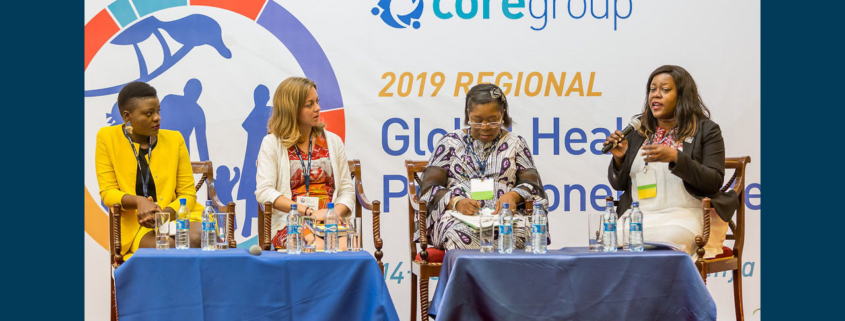 2019 CORE Group Global Health Practitioner Conference
2019 CORE Group Global Health Practitioner Conference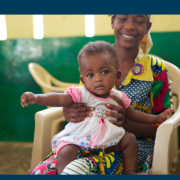 Sara Holbak/VectorWorks/Photoshare
Sara Holbak/VectorWorks/Photoshare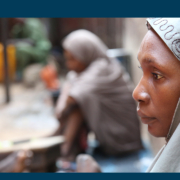
 Jonathan Torgovnik/Getty Images/Images of Empowerment
Jonathan Torgovnik/Getty Images/Images of Empowerment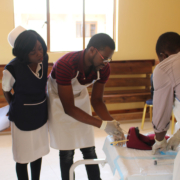
 WHO
WHO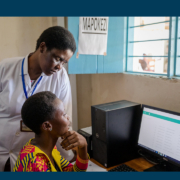 Rachel Chilton/USAID/Flickr
Rachel Chilton/USAID/Flickr